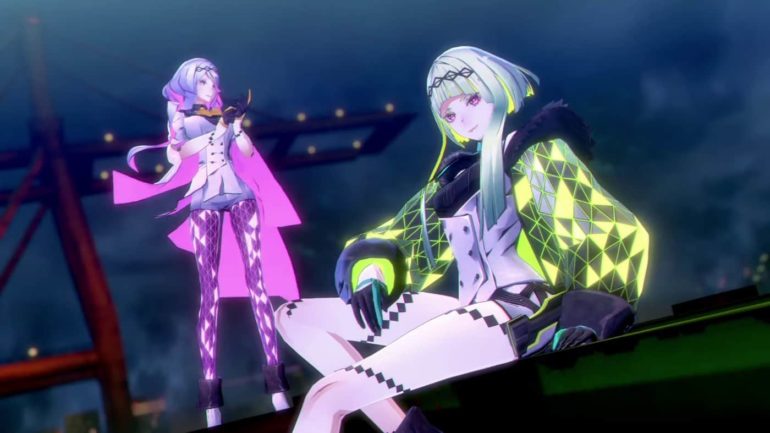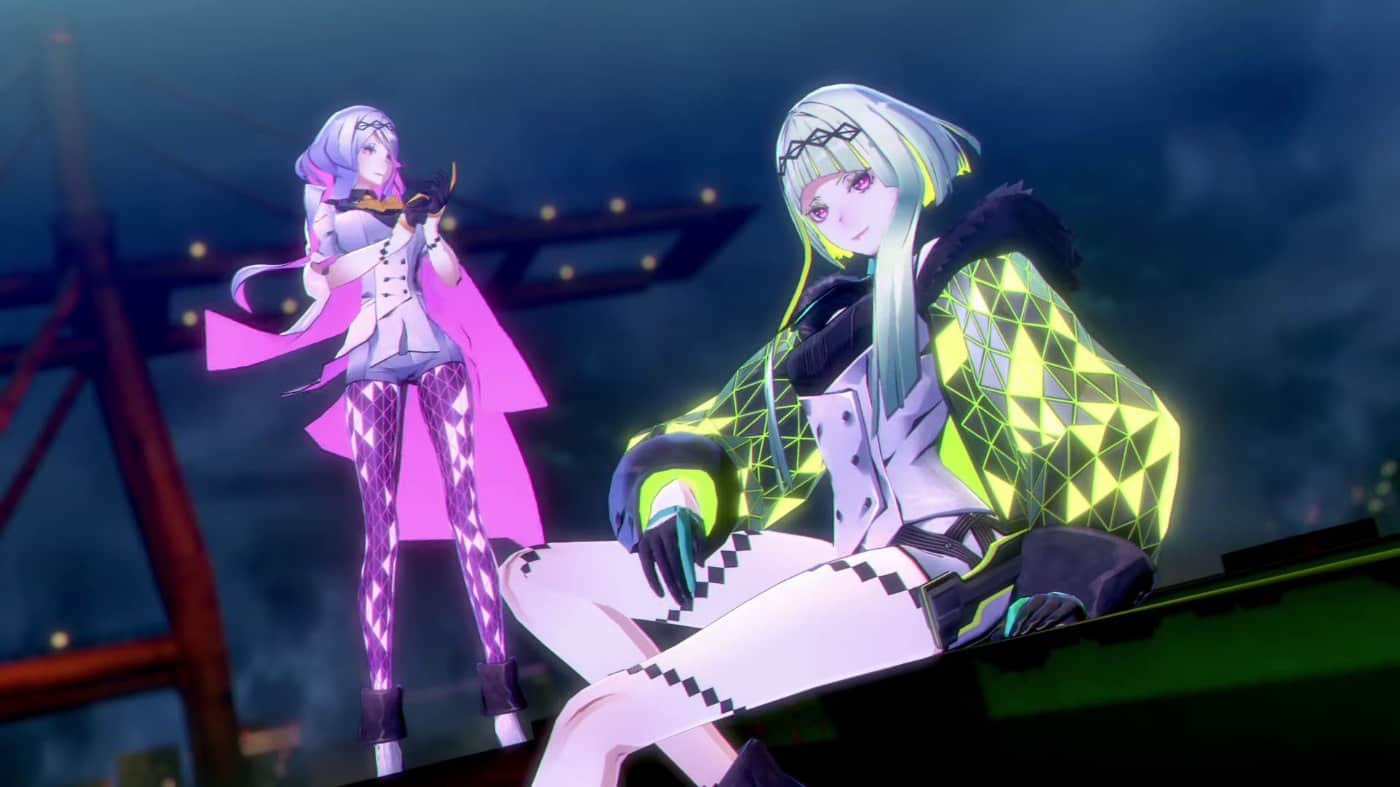While Shin Megami Tensei has a firm understanding of its identity and what it is today, it was still finding its footing when the original Devil Summoner: Soul Hackers came out in 1997. The series hadn’t yet landed on the pivotal Press Turn System that Shin Megami Tensei III: Nocturne would bring to the table, something that would inform the design of every entry going forward. Still, though, Soul Hackers stood out for its palpable atmosphere, slick cyberpunk setting, and experimental mechanics that preserve its originality and uniqueness to this day.
THE CHEAPEST COPY: $79 FROM AMAZON WITH FREE DELIVERY.
It’s with this knowledge that the announcement of a sequel, nearly 25 whole years later, came as a shock to many fans of the cult-classic. In a world where the Devil Summoner spin-off series had seemed to be long-forgotten, what form would Soul Hackers take in a world where Persona is more popular than the mainline series? The answer is unfortunately, a rather disappointing one. While Soul Hackers 2 has all the fundamentals of a typical Shin Megami Tensei game, it lacks the alluring complexity of previous entries. Opting for a more streamlined and straightforward RPG, that while immediately accessible, struggles to stand up to the lofty achievements of its predecessors, and that’s without getting into its egregious DLC practices.
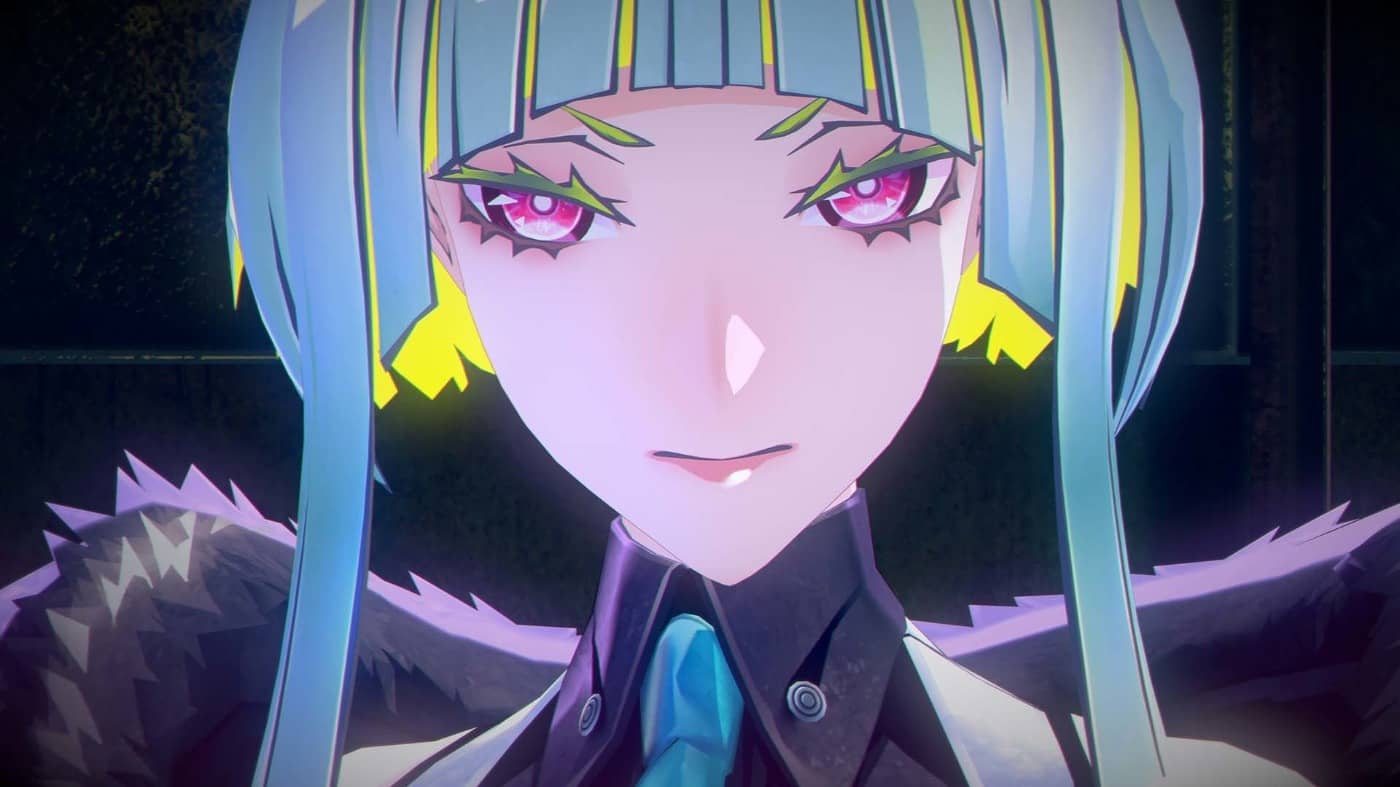
Set during a war between the Yatagarasu and the Phantom Society, Soul Hackers 2 follows two supernatural beings named Ringo and Figue. Birthed from a place purely made of data and information, Ringo and Figue enter the human world in order to avert a predicted cataclysmic event that will end all of humanity. They quickly meet with Devil Summoners from both Yatagarasu and the Phantom Society that have their own motives for revenge and the party sets out to untangle the web of conspiracies and malicious plans that will ultimately lead to the end of the world.
While it isn’t a narrative I’d describe as boring or mundane, it definitely feels more surface level and less nuanced than the original. There aren’t many themes or ideas explored here beyond your typical end of the world schtick, and there was a lot of potential for that with the likes of Ringo and Figue being sentient AI. It feels like it merely serves as a vessel for gameplay, but that stands out in a series with a narrative pedigree like Shin Megami Tensei.
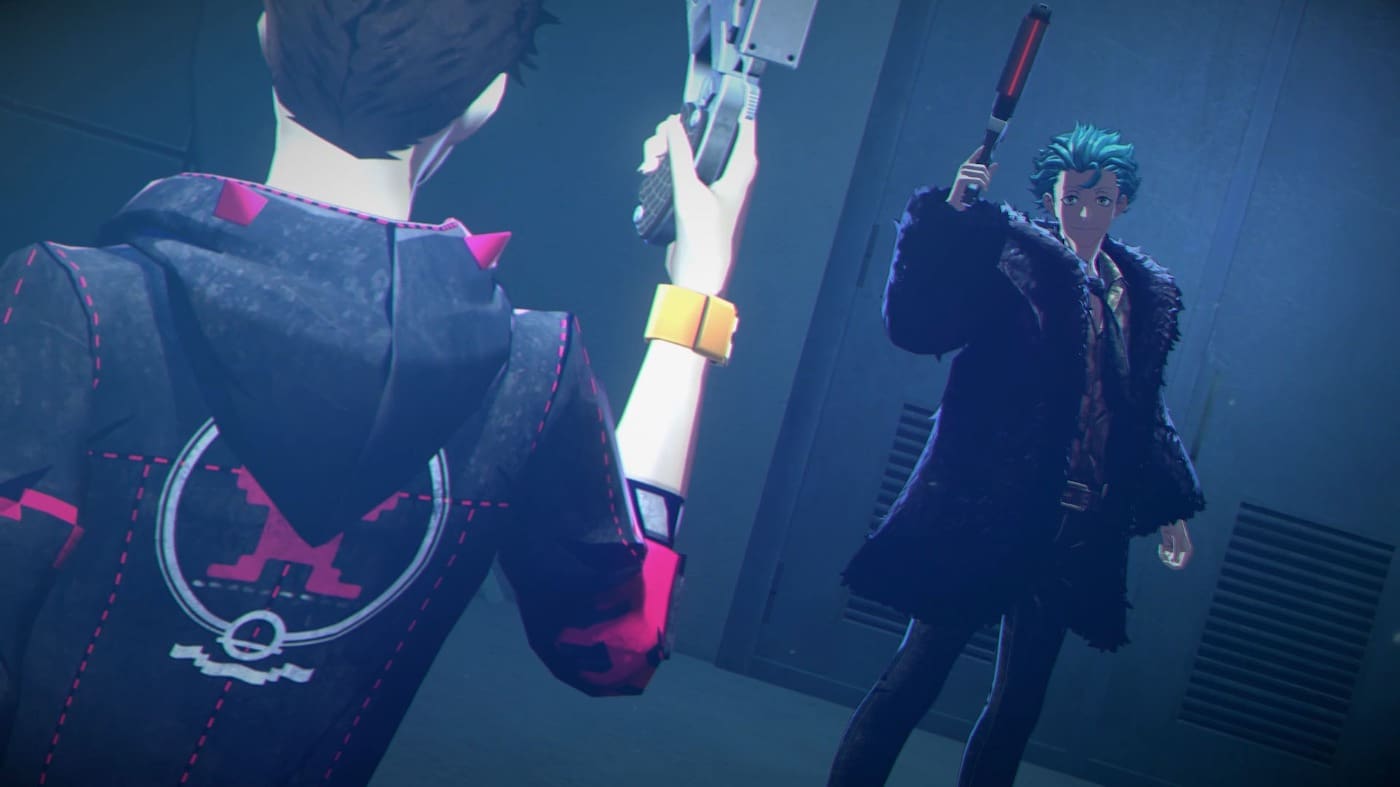
The core cast also doesn’t do much to save it, unfortunately, mostly because they feel so tangential to the main plot. Ringo and Figue are undoubtedly the most interesting struggling with the concepts their presented with as AI in a human world. While the others are decently fleshed out over the 30-40 hour run-time, nothing particularly stuck with me after the credits rolled. Part of this is due to the Soul Matrix, the way in which these characters are explored. As you explore dungeons unique to each character within the Soul Matrix, you’ll uncover key events in their lives that led them to where they are today. The problem, is that progression through the Soul Matrix is gated by main story progression, leaving it disjointed, and sporadic in nature. There’s no real depth or complexity to the core cast here, which also extends to core gameplay.
Shin Megami Tensei is known best for its brutal turn-based combat, where a single mistake can lead to a cascade of effects. What’s typically as triumphant as it is ball-busting in difficulty, is disappointingly watered down here in Soul Hackers 2. At the core of every SMT game since Nocturne is the Press Turn System, with each spin-off riffing on the idea in some format to introduce something new. Soul Hackers 2 does this in the form of Stacks, whereby hitting enemy weaknesses will create a Stack. If you have at least one Stack by the end of your turn, your demons will perform a Sabbath, a huge attack which grows in power depending on how many Stacks you have by the end of your turn.
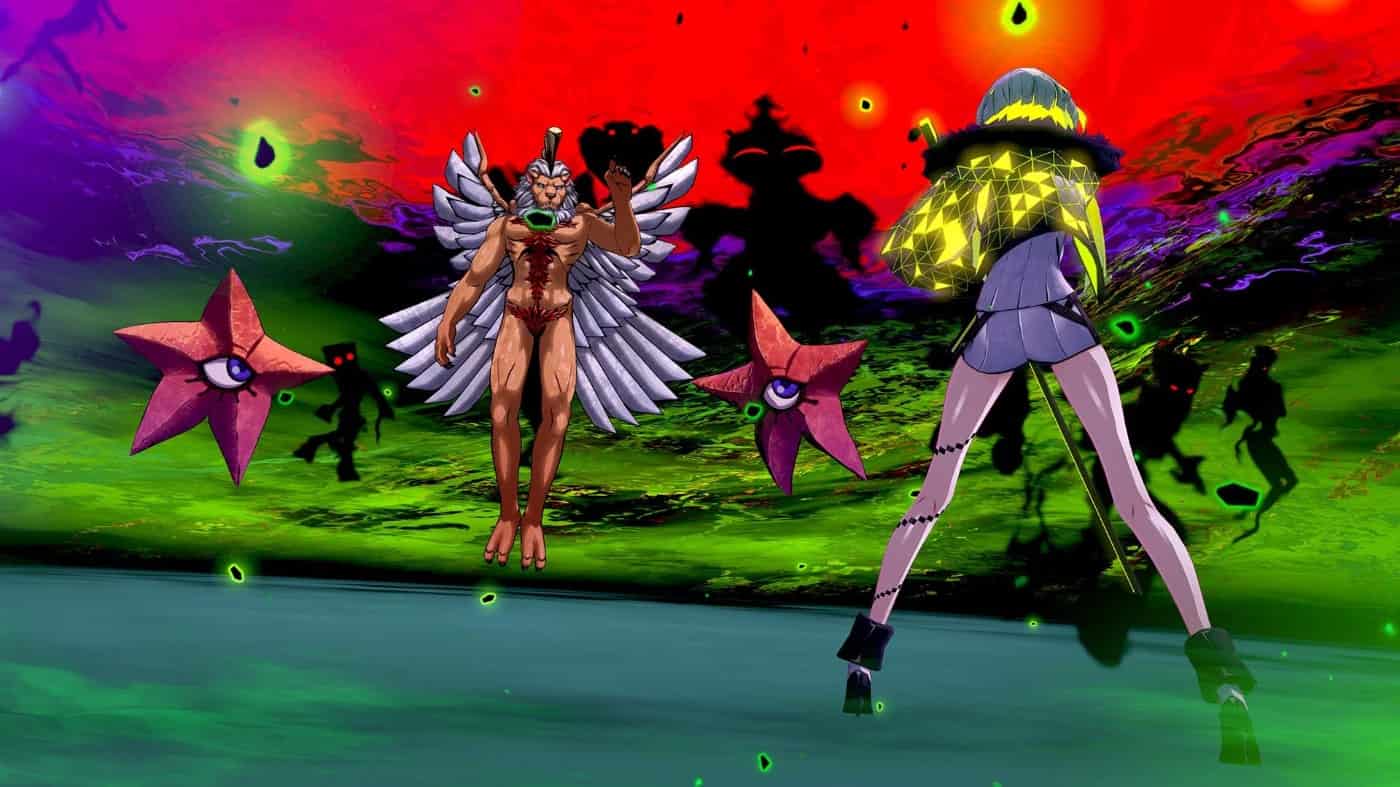
While it’s an initially flashy and instantly rewarding spin on the Press Turn System, it grows to be mindlessly simple and lacking in complexity. It’s ultimately boils down to getting bonus damage for hitting an enemy’s weakness with little to no strategy in regards to how you get there. The combat system is also hurt by lack of punishment for rash or hasty decision making, with attacks that enemies are resistant to resulting in nothing except lost damage. The core appeal of striking enemy weaknesses and having smart party setups is still here, but isn’t nearly as rewarding. It does make for a more accessible SMT experience, but ultimately one that I think many will bounce off of due to the lack of complexity.
Dungeon design is also disappointingly simple, with uninspired and rudimentary puzzles sprinkled throughout visually dull hallways. The Soul Matrix is particularly mundane, with environments feeling copy and pasted between floors with scattered boss encounters throughout. When you begin exploring a dungeon, Ringo will send out her recruited demons to scout the area for items, money, side quests, and more. While this is a cool idea on paper, it significantly waters down exploration and Demon Negotiations.
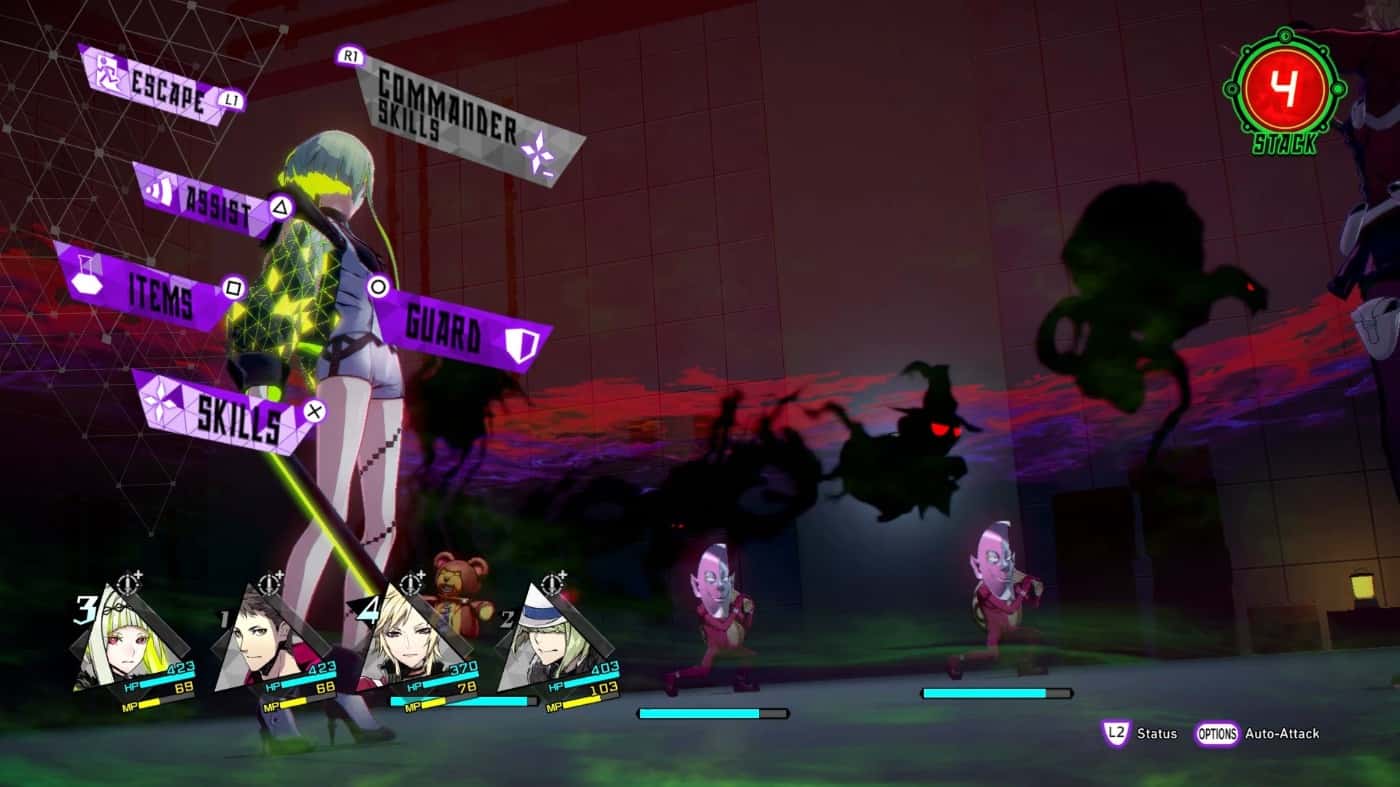
I mention Demon Negotiations specifically because this is also relegated to the scouting system, where demons will propose to join you if you give them something they demand. It can’t be understated how much this takes away from the core idea behind recruiting demons. What used to be a system where world-building and smart decision making combine to create an incredibly engaging system, is now watered down into a simple yes or no choice, that will almost always be a yes from the player, as recruiting a new demon is far more valuable than whatever it is they’re asking for.
Outside of dungeon exploration and combat, you’ll spend your time purchasing equipment, items, and fusing your demons to create even stronger demons. Fusion is exactly as you’d expect, incentivizing smart use of your demon supply to bolster your party and weakness coverage as you progress through the main story. There’s heaps of equipment to customize each character with, allowing for some neat build potential. Nothing feels like a wrong choice as demons can be assigned to party members as you see fit, allowing you to switch up roles on the fly. A special mention should go to upgrading the demon summing device, the COMP, where you can improve the rate at which you gain Stacks, boost skill damage, and much more.
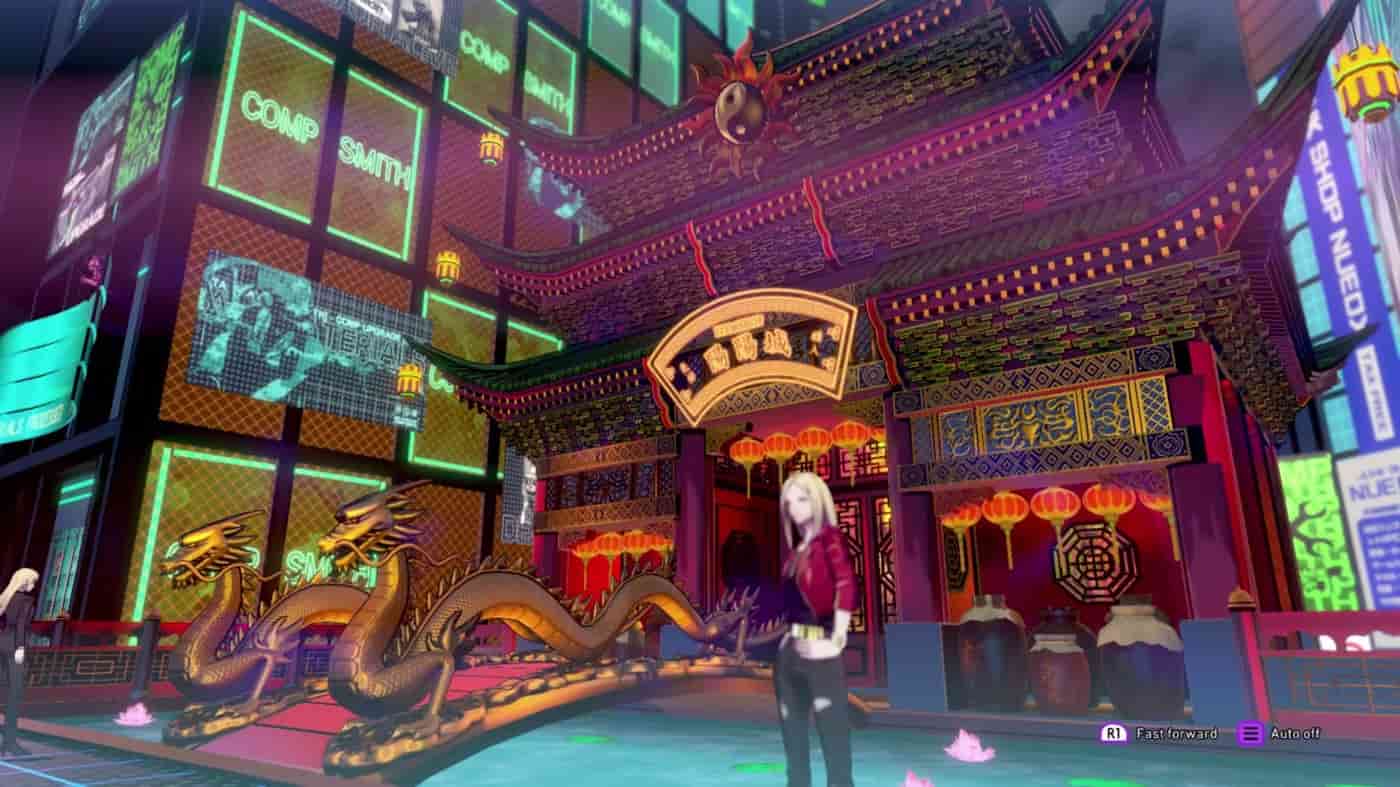
While Soul Hackers 2 can’t hold a candle to the likes of Persona, this is still a slick looking RPG from Atlus, especially compared to other entries. The 3D models of demons are a joy to look at, attack animations are eye-catching and the general aesthetic of the game, while different from original, establishes its own identity. The 2D character portraits are similarly expressive and detailed, giving character interactions an extra bit of personality and life that goes a long way. Performance is also remarkably smooth, making for an overall polished experience, regardless of whether you choose to play it at 4K, or 1440P.


